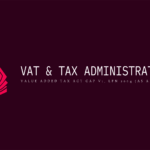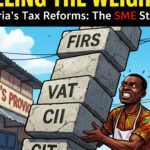
Core Issues for Small Businesses in Nigeria’s Tax Reform
The ongoing tax reforms, driven by the need to increase government revenue and formalize the economy, present several critical issues that small and medium-sized enterprises (SMEs) must navigate.
Increased Tax Burden on Small Enterprises: A primary issue is the potential for an increased financial burden. While the official Company Income Tax (CIT) rate may not have changed for small businesses (turnover below ₦25 million remains exempt), the government is aggressively expanding the tax net. This includes stricter enforcement of other taxes like Value Added Tax (VAT), withholding tax (WHT) on more transaction types, and the introduction of various levies at both federal and state levels. For businesses previously operating on the fringes of the formal tax system, these changes represent a significant new operational cost.
Administrative and Compliance Complexity: The reforms introduce a higher level of complexity in tax administration. Small businesses, which often lack dedicated accounting departments, now face the challenge of accurately calculating, remitting, and filing multiple types of taxes on time. The requirement to use technology platforms for tax filing and payment, while intended to improve efficiency, presents a steep learning curve and additional costs for technology adoption and staff training. Failure to comply due to lack of knowledge or resources can lead to substantial penalties.
Expansion of the VAT Net and WHT Obligations: A significant change has been the rigorous enforcement and proposed expansion of the VAT system. More goods and services are being brought into the VAT net, meaning SMEs must act as collection agents for the government. They are required to charge VAT, remit it to the Federal Inland Revenue Service (FIRS), and keep meticulous records. Similarly, the obligation to deduct and remit Withholding Tax on payments to suppliers and contractors adds another layer of administrative responsibility that many small businesses are ill-equipped to handle.
Multiple Taxation from Different Government Agencies: A persistent and critical issue is the challenge of multiple taxation, where federal, state, and even local government agencies impose similar taxes, levies, and fees on the same business. The current reforms have not yet fully harmonized the tax system, leaving small businesses vulnerable to demands from various authorities. This not only drains financial resources but also creates an unpredictable and often hostile business environment.
Key Takeaways for Small Business Owners
Understanding these issues leads to several crucial takeaways for SME owners to ensure their businesses remain compliant and viable.
Financial Record-Keeping is No Longer Optional: The era of informal bookkeeping is over. To accurately calculate and prove tax obligations, small businesses must invest in robust accounting practices. This means keeping detailed records of all income, expenses, invoices, and receipts. This is the first line of defense against arbitrary assessments and penalties.
Embrace Technology for Compliance: The FIRS and many state revenue services are now technology-driven. Business owners must familiarize themselves with online tax portals like the FIRS’s TaxPro-MAX for filing returns, making payments, and obtaining Tax Clearance Certificates (TCCs). Resisting this technological shift will lead to non-compliance.
Separate Business and Personal Finances: It is now more critical than ever to maintain separate bank accounts for business and personal transactions. Tax authorities are increasingly scrutinizing bank statements to assess income. Mingling funds makes it difficult to prove which transactions are business-related, potentially leading to higher tax assessments.
Understand Your Specific Tax Obligations: Business owners need to proactively learn which specific taxes apply to their industry and revenue level. This includes knowing the current VAT rate, understanding which payments require WHT deductions, and being aware of local government levies. Ignorance is not a valid defense against non-compliance.
Seek Professional Guidance: The tax landscape is complex and constantly evolving. Engaging the services of a qualified, affordable accountant or tax consultant is a necessary investment. A professional can ensure accurate filings, help with tax planning to legally minimize liabilities, and represent the business in case of disputes with tax authorities, saving significant time and money in the long run.


